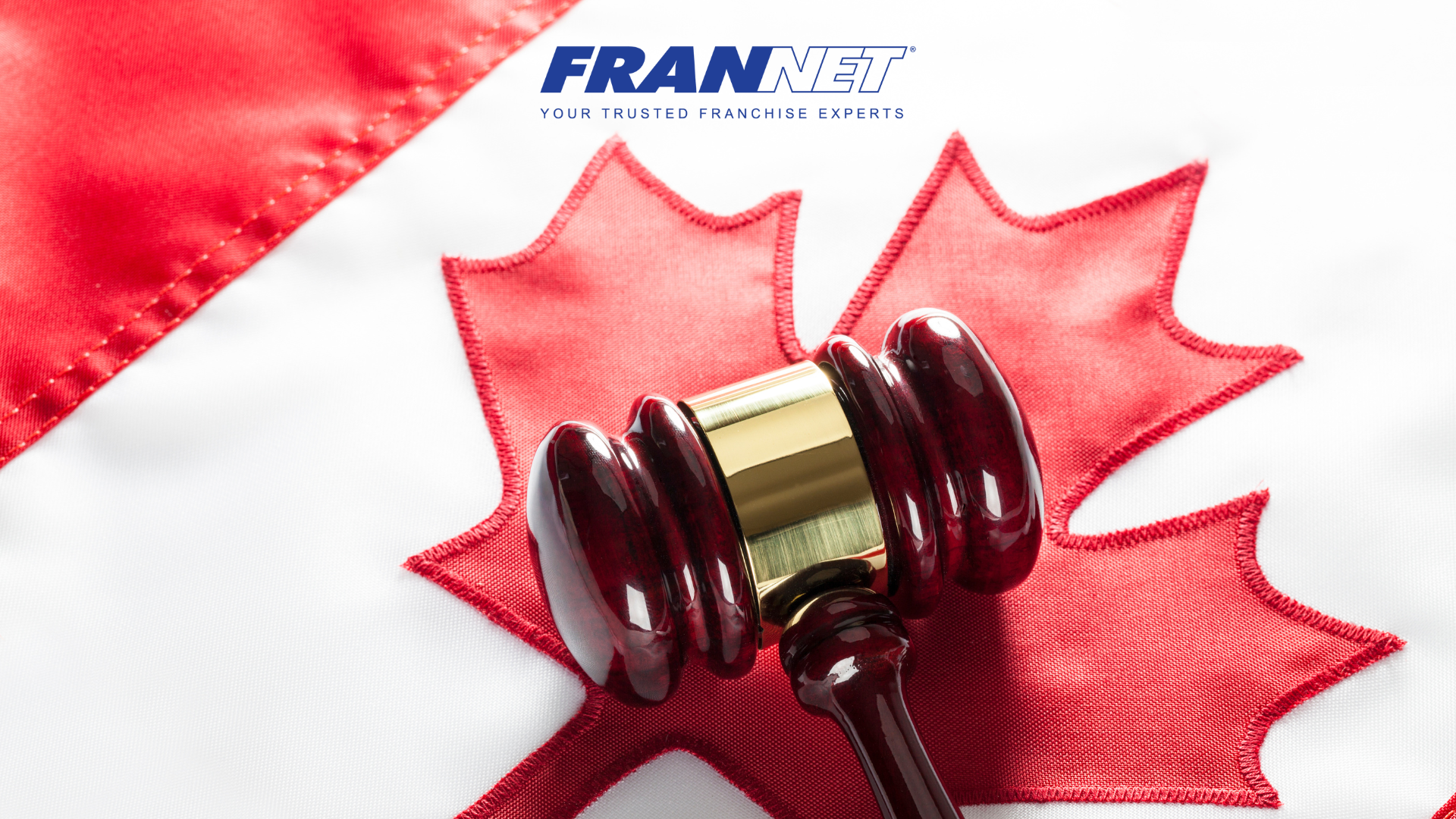Updated July 2025
Franchise law in Canada is currently a patchwork. While some provinces have formal franchise legislation, others rely on general business law or common law protections. To help harmonize these differences, the Uniform Law Conference of Canada (ULCC) introduced a model statute: the Uniform Franchises Act.
Although not legally binding, this proposed framework serves as a guide for provinces and territories looking to adopt or revise franchise legislation. Let’s discuss what the ULCC’s model law proposes—and why it matters for franchisees and franchisors alike.
Fact: The Uniform Franchises Act is similar to the Uniform Franchise Offering Circular (UFOC), which was replaced by the Franchise Disclosure Document (FDD) in the United States.
Franchise Law in Canada: Where It Stands
As of now, seven Canadian provinces have specific franchise laws:
Other provinces and territories—including Quebec, Nova Scotia, and the northern territories—do not have franchise-specific legislation. This uneven landscape makes compliance and enforcement challenging for franchisors operating nationwide.
What Is the ULCC?
The Uniform Law Conference of Canada is a national organization that works to harmonize laws across Canadian jurisdictions. Each year, legal professionals from across the country meet to draft model statutes for provinces and territories to consider adopting.
The Uniform Franchises Act was drafted by the ULCC’s Civil Section to promote a standardized legal approach to franchising across Canada. It draws from existing laws in Ontario and Alberta and aims to simplify and unify franchise regulation.
3 Key Features of the ULCC’s Uniform Franchises Act
#1 – Right to Associate
]The Act supports the right of franchisees to join or form associations with other franchisees—without interference or retaliation from the franchisor. Franchisors would be prohibited from penalizing franchisees for associating or sharing information.
#2 – Mandatory Disclosure
The model law includes a robust disclosure requirement, mirroring what’s already in place in provinces with franchise legislation. It mandates that franchisors provide a complete disclosure document:
- At least 14 days before any agreement is signed or money is exchanged
- Including financial statements, proposed agreements, and all material facts relevant to the franchise
- In a clear, concise, and accurate format
This helps prospective franchisees make informed decisions and holds franchisors accountable for transparency.
#3 – Rescission Rights
If a franchisor fails to provide a proper disclosure document—or omits critical information—franchisees would have the right to rescind the agreement:
- Within 60 days if incomplete disclosure was provided
- Up to two years if no disclosure document was provided at all
In either case, the franchisor would be required to refund all payments (excluding inventory and equipment) and repurchase inventory, supplies, and equipment at their original cost. Franchisees would also be eligible for compensation for losses incurred in acquiring, setting up, and operating the business.
Why the ULCC’s Act Matters
The ULCC’s Uniform Franchises Act provides a comprehensive foundation for franchisee protection and regulatory clarity. While provinces are not required to adopt it, the Act offers a valuable blueprint for governments seeking to introduce or modernize franchise legislation.
For example, Saskatchewan, the most recent province to enact franchise legislation, modeled its franchise law after the ULCC’s recommendations. As other jurisdictions consider similar steps, the Act could play a major role in shaping future franchise law across Canada.
Thinking About Franchise Ownership in Canada?
The Uniform Franchises Act is a significant step toward creating a consistent legal framework for franchises in Canada. While not yet adopted nationwide, it sets the stage for better protections, clearer obligations, and more transparency between franchisors and franchisees.
If you’re considering a franchise in Canada, FranNet is here to help you get started. One of our franchise consultants will help you find a franchise to join that fits your goals and objectives. Schedule your free consultation today!

